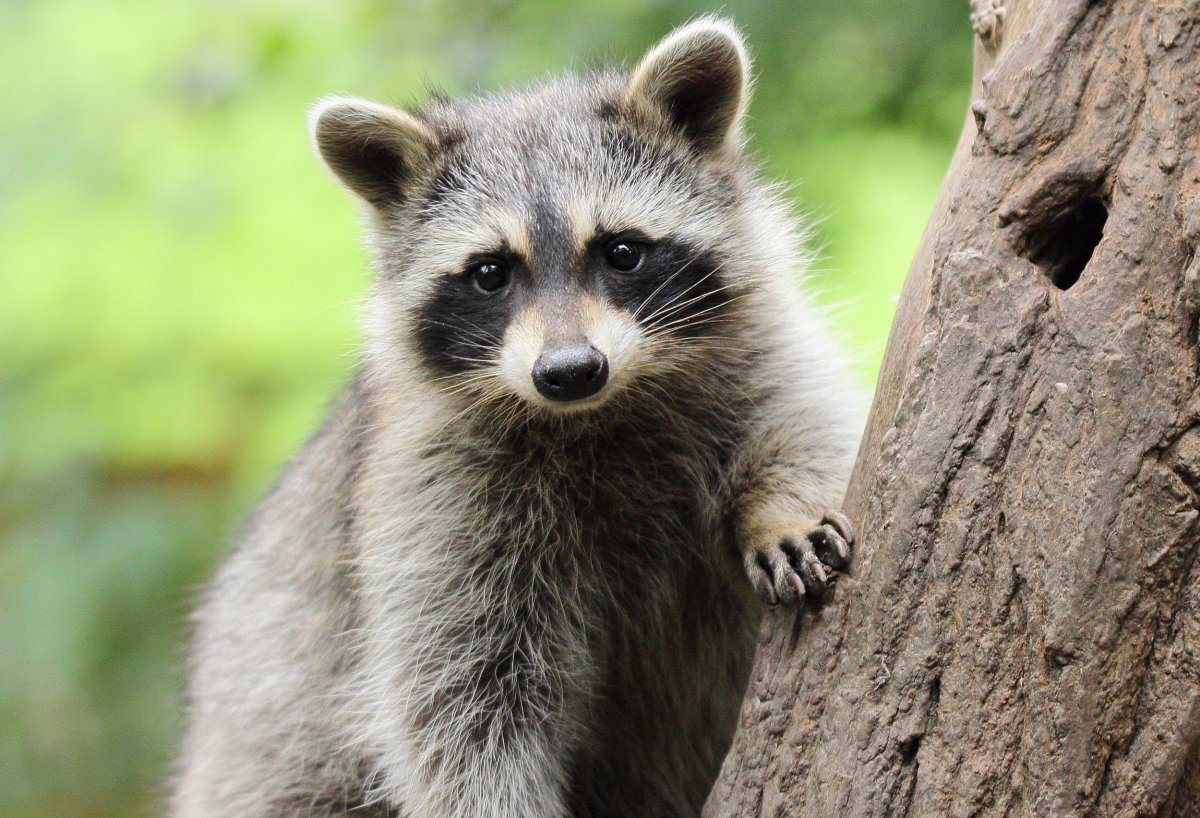While raccoons have long been a staple of life in the U.S., they are becoming increasingly common in Europe and are threatening local species.
These raccoons are an especially serious problem in Belgium, where more than 60,000 of the critters have made their home as an invasive species.
Local species are being put at risk by the presence of these raccoons, as they hunt down native wildlife as prey, and also spread diseases.

Raccoons were first brought to Europe in the 20th century, and are now established in 20 countries across the continent. In the decades since, their population has exploded.
"From around 2005, we started finding tracks alongside waterways and dead raccoons as roadkill, suggesting a growing population," Vinciane Schockert, a biologist at the SPW (Walloon Public Service) told AFP. "They have also benefited from a series of mild winters."
Raccoons eat a wide range of native animals, including birds, mammals, amphibians, reptiles, fish and insects. They also raid nests of local birds, hindering reproduction.
It is now thought that between 60,000 and 70,000 raccoons call Belgium home. They pose a threat to a variety of local species, including the tawny owl, the white-throated dipper, the black stork, and the sand martin. The black stork and the sand martin are both endangered species.
Worldwide, invasive species are a huge issue: of 37,000 invasive species globally, 3,500 are considered harmful and pose a "severe global threat," according to a new United Nations Intergovernmental Platform on Biodiversity and Ecosystem Services (IPBES) report. The report says that the global economic cost of these invasive species amounts to $423 billion annually, as of 2019.
"Unfortunately invasive exotic species[...]are one of the five main causes of degradation of biodiversity around the world," Celine Tellier, environment minister of Wallonia, the French-speaking region of Belgium, told AFP.
"Today the species is so widespread in our territory that we must learn to live with it, but at the same time learn to manage it in the places where it poses the most problems and avoid multiplying its spread."
Other issues of the raccoon boom include the diseases that they may be host to, which they then spread to native wildlife.
"Raccoons transmit the raccoon roundworm and are considered reservoir hosts for the West Nile virus. Raccoon dogs host similar pathogens, including lyssaviruses that cause rabies, canine distemper viruses, and the fox tapeworm.
"Moreover, raccoon dogs are currently suspected to be reservoir hosts for coronaviruses (including SARS-CoV-2)," parasitologist Sven Klimpel of the Goethe University in Frankfurt, Germany, said in a statement in 2021.
According to Belgian locals, it is now too late to cull the raccoons to prevent their impact on local species.
"We can't now respond to all the requests," Thierry Petit, a Belgian forest ranger in the Barriere Mathieu woods in the south of the country, told AFP.
"We can't come out if it's just someone reporting raccoons in their garden. We'll reduce the population where it poses a threat to the black stork or the sand martin—or where we can really protect a habitat."
Do you have an animal or nature story to share with Newsweek? Do you have a question about raccoons? Let us know via nature@newsweek.com.
Uncommon Knowledge
Newsweek is committed to challenging conventional wisdom and finding connections in the search for common ground.
Newsweek is committed to challenging conventional wisdom and finding connections in the search for common ground.
About the writer
Jess Thomson is a Newsweek Science Reporter based in London UK. Her focus is reporting on science, technology and healthcare. ... Read more
To read how Newsweek uses AI as a newsroom tool, Click here.








